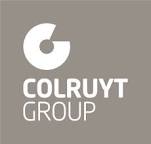Halle, Belgium, 2017-Jan-07 — /EPR Retail News/ — Colruyt Group is further expanding its already successful collaboration with the Food banks. Until recently, local collection of unsold food took place in 14 Colruyt stores, this number will now be increased to as many as 37 stores. Colruyt Group considers it a duty to limit food loss to a minimum. With this expansion, a lot more can be donated than the 443 tonnes which were collected in 2016.
Since spring 2016, 14 Colruyt stores in Belgium have donated their unsold yet perfectly edible food directly to local organisations, under the management of the Food banks. This means about 2 to 3 tonnes of food per store per month. Now, the number of stores has more than doubled. Henceforth, local collection of unsold food will be organised in 37 stores. “With the holidays, extra attention was focused on looking after others and providing for the less fortunate. We want to commit to that for the whole year. By expanding our collaboration with the Food banks, we aim to focus even more on the reduction of food loss,” says Françoise Decoster of the environment service.
The collaboration with the Food banks is nothing new. Since 1997, Colruyt Group has donated unsold food, which can still legally be sold, to the Food banks. On one hand, donation takes place through the Dassenveld logistics centre in Halle. There, the Food banks collect unsold food from a number of stores every weekday, as well as food from the distribution centre itself. On the other hand, it happens locally, direct from the stores themselves. The collaboration between Colruyt Group and the Food banks runs exceptionally smoothly. Alfons De Vadder, Managing Director of the Belgian Foodbanks Federation says, “For us, the way in which we work with Colruyt Group is an example of the approach we want to take with our other partners. For example, the food is already neatly sorted and ready for our volunteers, so they can immediately load it without losing any time. Furthermore, Colruyt has already checked the quality, so we can be sure that we don’t have to throw anything more away.”
In 2015, a total of 490 tonnes was donated to the Food banks. In 2016, the 14 participating stores alone donated 443 tonnes of food. That went directly to the Food banks or to a member (regional) organisation. “Obviously, we’re now trying for an even greater volume thanks to more than doubling the number of collection points,” says Françoise Decoster.
Optimum use of high quality surplus food
To prevent food loss by our customers, fresh foods are removed from the shelves four days before their expiry date, and this applies to all stores. “So we get products with a comfortable shelf life which makes our work more pleasant,” says Alfons De Vadder of the Belgian Foodbanks Federation.
The system also makes it possible to expand donations to include fruit and vegetables which are still perfectly edible, but no longer appealing enough to be offered to customers, or whose packaging has been damaged.
Thanks in part to an efficient, automated supply system, with optimum stocks for each store and a range tailored to its needs, Colruyt Group sells a maximum quantity of goods efficiently. “For fresh food which isn’t sold, we come up with the most useful possible applications, always taking into account food safety and what is economically and practically feasible. The expansion of our collaboration with the Food banks is yet another large step in the right direction of diverting surplus food for human consumption,” concludes Françoise Decoster.
The Food banks (www.voedselbanken.be)
The Belgian Foodbanks Federation is an umbrella organisation. It represents a national network of 9 regional Food banks which distribute food amongst charities. The Food banks’ objective is to distribute food aid to the less fortunate. To this end, they receive large quantities of free food from the Fund for European Aid to the most Deprived (FEAD), but also from the food industry, large retailers and auctions, and they organise food collections from the general public. Everything collected is used to provide as many meals as possible to the less fortunate. Currently, around 13,000 tonnes of food is collected via around 629 local charitable organisations and distributed to over 138,000 beneficiaries.
Contact:
Hanne Poppe
press@colruytgroup.com
+32 (0)2 363 55 45
+32 (0)473 92 45 10
Source: Colruyt Group
